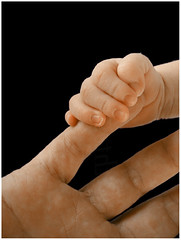
Speaker: Rachel Frick, Digital Library Federation
Sees herself as a community builder for the greater benefit of the profession as a whole.
There is a lot going on in libraries, and it can be overwhelming. At the same time, it’s an exciting time to be a librarian. If we embrace the challenge of the change and see the opportunities, we will be okay.
We are at “the incunabula period of the digital age.” -T. Scott Plutchak
The network changes everything. See also: Networked by Lee Raine & Barry Wellman
This can be good, or it can be bad (see also: Google Buzz). We have the opportunity to reach beyond our home institutions to have a broader impact.
Data has many different facets. We are talking about data-driven decision making, research data, data curation, linked (open) data, and library collections as data.
When we started digitizing our collections, we had a very library/museum portal view that was very proscribed. The DPLA wanted to avoid this, letting folks pull data through APIs and display it however they want. When we start freeing our stuff from the containers, we start seeing some new research questions and scholarship.
“Local collections are the dark matter of a linked data world.” -Susan Hildreth, Director of IMLS
Catalog and pay attention to the unique things that are at your institution. We need original catalogers back. This is the golden age for catalogers. We need to reinvent the way we process the hard and difficult things to describe. It’s about the services, not the stuff.
If the car was developed in the library, it would have been called the e-horse. Please don’t hire a data curation librarian or eresearch librarian or … data and local content is everyone’s job. The silos have to come down in our services, too. By silo-ing off the jobs, we’re not harnessing the power of the network.
Print-based societies needed the buildings, but in the digital society, it’s more about the connections. We should talk about what librarians do, not what libraries do. Do we want to serve our buildings or serve our communities? We cannot allow the care and feeding of our buildings to define us. The mission is what defines us.
Our mission is greater than our job. “Our mission is to improve society through facilitating knowledge creation in their communities.” (R. David Lankes) If this isn’t why you show up every day, then maybe it’s time to reassess your life and career choice.
We are a community, with permeable borders, and room at the table for everyone. But, this causes a lot of fear and anxiety, and can raise the spectre of the snark. This is detrimental to open community development.
Snark: “I really wish the DPLA would do ___.”
Frick: “The DPLA is you! Show up!”
If we come with our 10lb hammer to smack down every new idea, we will not be able to move forward.
Vulnerability is “the courage to show up and allow ourselves to be seen.” (Dr. Brene Brown) Be open to feedback — it is a function of respect. Admitting a vulnerability builds strength and trust, and a culture of shared struggle/experience.
We need to hang out with not the usual suspects. If this is the 10th time in a row that you’ve attended a particular conference, maybe you need to try something new. We need to think of librarianship outside of our normal communities.
The hacker epistemology says to adopt a problem-solving mindset, and the truth is what works. Our “always” of doing things will not translate to the networked world. The #ideadrop house was a wild success. People wanted to share their ideas with librarians!
Jason Griffey created the library boxes — small hard drives with wifi capability that allow anyone to access and download the content. They put them everywhere at SXSW — pedicabs, volunteers carrying them around, etc.
How do you communicate your ideas to people outside of your community?
In this world of networked individualism, our success is up to us. We have to have a personal responsibility to the longevity and success of our profession. This golden moment for librarianship is brief, so we have to act now. Be engaged. Be there.
How do you lead? Leadership is not being an AUL or head of a department. We lead by example, no matter where you are.
The stuff that’s easy to count really isn’t important. We need to have a national holiday from performance metrics.
Dare a little. Be more open. Take more risks, even if they’re small. Be easy on yourself.
